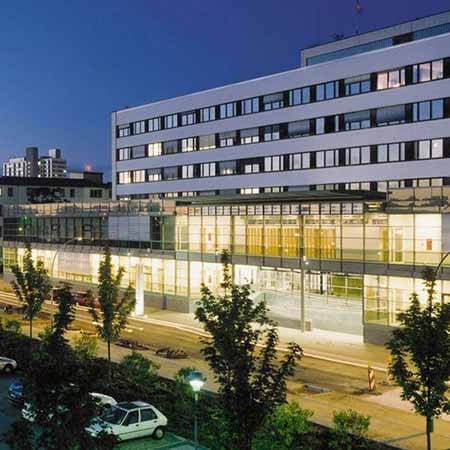Vegetative dystonia (vegetovascular dystonia, autonomic dysfunction) is an outdated diagnosis from the mid-twentieth century. As of today, it is known that autonomic dysfunction is always secondary. This condition develops due to various diseases such as neurological, mental, and somatic, although most often it is a consequence of anxiety disorders. Autonomic dysfunction is not only unpleasant, but also dangerous. In severe cases, complications, including death, are possible. You can undergo your treatment of vegetative dystonia in Germany to get long-term results or to completely cure the disease.
Content
- What is vegetative dysfunction?
- Treatment of vegetative dystonia
Autonomic dystonia is treated with conservative methods. Doctors use non-drug procedures, give individual recommendations for lifestyle corrections, and also prescribe drugs to restore the mental state and normalize the functioning of the internal organs.
You can undergo your treatment at one of the following hospitals: Beta Klinik Bonn, University Hospital Ulm, or Bundeswehr Hospital Berlin.
Booking Health will fully organize your trip to Germany, from the choice of a clinic and a treatment method to the translation of the recommendations you will receive upon the completion of your treatment. You will also be accompanied by an interpreter at the clinic, and your personal medical coordinator will stay in touch with you 24/7.
What is vegetative dysfunction?
The autonomic nervous system is responsible for body functions that work autonomously, without our control. For example, this is vascular tone, intestinal motility, the production of enzymes and hormones, etc.
The work of the autonomic nervous system depends on the psycho-emotional state. Therefore, mental disorders interfere with the work of organs and systems, and if this happens constantly, then psychosomatic diseases develop.
Here is what can happen to the body in the case of autonomic nervous system dysfunction:
- blood pressure rises, arrhythmias develop, angina attacks may occur due to a coronary artery spasm;
- gastrointestinal motility is disturbed, which may affect the stomach (functional dyspepsia), the colon (irritable bowel syndrome), and the biliary tract (dyskinesia);
- skin condition changes such as sweating, redness, or blanching;
- dizziness and fainting may develop;
- panic attacks and laryngeal spasms occur, and a patient has a feeling of a lack of air;
- sleep is disturbed;
- metabolism changes due to increased production of cortisol and catecholamines, weight gain or loss is possible, intolerance to heat or cold, and fever.
Treatment of vegetative dystonia
The disease is chronic, so it takes a long time to heal. However, over time, the symptoms may be relieved, up to their complete disappearance. As a rule, the younger the patient, the more severe the symptoms.
Preference is given to non-drug treatment methods and lifestyle corrections to normalize the function of the autonomic nervous system. Additionally, symptomatic therapy may be required, depending on the prevailing symptoms.
Non-pharmacological methods include:
- exercise on a regular basis;;
- normalization of sleep and rest;
- avoiding stressful situations and increasing the body's resistance to stress;
- psychotherapy;
- physiotherapy;
- relaxation training.
Doctors at German hospitals often prescribe drug therapy, which depends on the prevailing symptoms:
- psychotropic drugs such as anxiolytics, small antipsychotics, and antidepressants;
- drugs for hypertensive crisis relief and heart rhythm normalization;
- drugs for gastrointestinal function normalization, such as antispasmodics and prokinetics.
After treatment, patients undergo neurological rehabilitation phase C. It helps to permanently improve the functioning of the autonomic nervous system, reduce the need for drugs or completely abandon them, and reduce the risk of complications.
Vegetative dystonia is not only an unpleasant disease, but also a dangerous one. In the long course, the condition may cause severe complications and shorten life expectancy. Therefore, all patients with this pathology require diagnostics and treatment. You can get top-class medical care at one of the Neurology Centers in Germany. You are welcome to use the Booking Health service to find the cost of treatment and make your treatment appointment at the best price. We will select the best clinics in Germany for you and arrange your trip.
Authors:
The article was edited by medical experts, board-certified doctors Dr. Vadim Zhiliuk and Dr. Sergey Pashchenko. For the treatment of the conditions referred to in the article, you must consult a doctor; the information in the article is not intended for self-medication!
Sources:
Medscape
Medical News Today
Google Scholar














